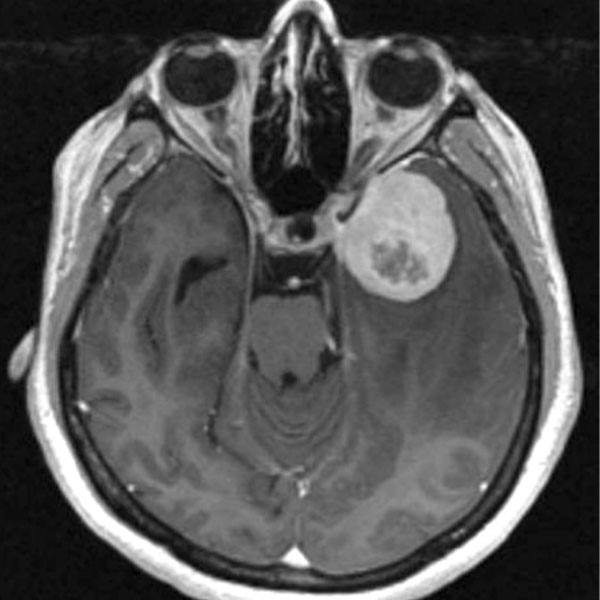-
Science Saturday: Study suggests chromosomal errors may hinder some aggressive tumors
Chromosomal errors are a hallmark of cancer cells. Defects in the genome derived from the incorrect separation of chromosomes (and the DNA packed within) in each division of cells drive tumor growth and resistance to therapy.
However, the opposite is also true, as very high levels of this persistent, chaotic genome scrambling, called chromosomal instability, is detrimental for tumors. Consequently, cancer cells must restrain these errors to survive.
In a research study published recently in Cell Reports Medicine, Mayo Clinic molecular and cancer cell biologist Veronica Rodriguez-Bravo, Ph.D., and her team identified a "brake" used by tumor cells that enables them to survive high chromosomal instability and become more aggressive. The researchers also discovered that therapy-resistant prostate cancer tumors display the highest chromosomal instability compared to other tumor types. If future therapies were developed to continue the instability — i.e., thwart the "braking" effect, this may potentially stop the cancer cells from growing and surviving.
"This study challenges further the dogma that chromosomal errors are mainly tumor-promoting and proposes that the errors can actually be the Achilles’ heel of aggressive tumors like those in metastatic prostate cancer," Dr. Rodriguez-Bravo says. "Typically, these tumors are considered 'invincible'; thus, finding they are selectively sensitive to drugs that lead to even higher chromosomal aberrations in tumor cells was very important. For many years, chromosomal errors were thought to be mainly tumor-promoting because they are associated with aggressive tumors’ progression."
Investigators studied experimental models such as prostate cancer cells and patient-derived preclinical models, combined with analysis of patient data. The team found that prostate cancer cells with a high level of chromosomal instability activate specific genes that stop the cells from acquiring more chromosome errors, ensuring the cancer cells survive and continue to promote tumor growth. Thus, aggressive, therapy-resistant tumors can avoid reaching catastrophic genome error levels that would kill them.
"The study shows that impairing the 'brake' therapeutically as a strategy to push cancer cells to accumulate fatal chromosomal error levels leads to therapy-resistant tumor cell death and improved survival of patient-derived preclinical models," Dr. Rodriguez-Bravo says. "The study provides proof of concept for a new therapeutic strategy against high chromosomally unstable aggressive tumors."
This study was a team science effort at Mayo Clinic involving investigators from the Department of Urology and the Department of Biochemistry and Molecular Biology.
"The main purpose of our research is to uncover chromosomal vulnerabilities of aggressive tumors like metastatic prostate cancer to help develop new combination therapies for patients," Dr. Rodriguez-Bravo says. "Studying fundamental processes through basic-to-translational cancer research is key to unlocking that goal and finding hidden opportunities."
The research was supported by the Mayo Clinic Foundation, the Mayo Clinic Comprehensive Cancer Center and the National Cancer Institute.








